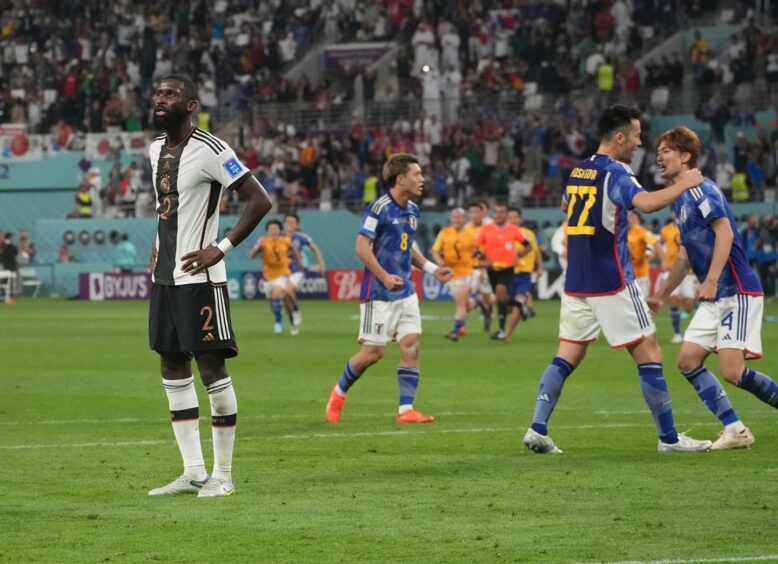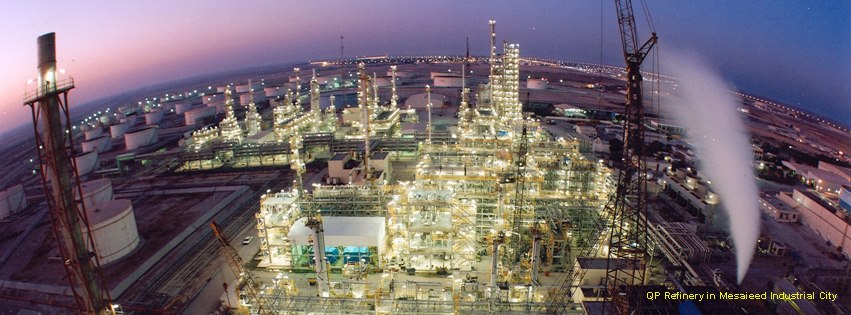
Since I’m on my way to Doha as I write, what better subject than LNG and the boom which will keep the dollars flowing into Qatar for decades to come.
The price of LNG quadrupled in August from the same point a year earlier so it is a fair bet that Qatar’s windfall profits alone have paid for a World Cup with change left over.
Call it pragmatism or hypocrisy according to your taste, but it is indisputable that while the World Cup has engendered much virtuous hand-wringing, the product that paid for it has never been more sought after, particularly in Europe.
Qatar is a phenomenon fuelled by gas and even since the World Cup began, huge deals have been done. Russia’s invasion of Ukraine in February led to competition for LNG becoming intense, with Europe needing vast amounts to help replace Russian pipeline gas.
Away from the football field, that is the resource which gives Qatar not only immeasurable wealth but also “soft power” around the world which it has become extremely effective at exercising, particularly through sport and media. But it all comes back to gas.
An irony is that Russia is itself a beneficiary of the market switch as it too is a huge LNG source. However, for obvious reasons, Europe belatedly wants to wean itself off Russian gas of all varieties while Qatar stands out as the best long-term best bet..
Road to Doha
Only two weeks ago, while Germany were losing their opening game to Japan, the country’s energy security was winning big with a huge deal from 2026 onwards for Qatari gas via 15-year purchase agreements with Qatar Energy and Conoco Philips.
Robert Habeck, Germany’s economy minister, enthused: “Fifteen years is great. I would not have anything against 20 year or even longer contracts”. Not much mention of migrant workers or LGBT rights in that response! All of these ethical concerns, it seems, are loaded onto football while in the executive lounges, it is not only ‘business as usual” but energy business at an exceptional level.
Of course, Europe has been drastically trying to replenish its stocks in time for winter when demand will soar. The EU’s storage levels are now thought to be at around 95 capacity, with many ships carrying LNG stuck in European ports as they wait to offload LNG cargoes. But it’s not only Europe that wants LNG and the market is likely to become a lot more competitive, keeping prices high.
Only last month, China’s Sinopec secured one of the biggest-ever LNG deals, signing a 27-year agreement to purchase 4mn tonnes a year of the fuel from QatarEnergy. The Qatari energy minister, Saad Sherida al-Kaabi, said it would “further solidify the excellent bilateral relations and help meet China’s growing energy needs”. Indeed it will and others are following the same road to Doha.
Qatar gas emergence
The astonishing point is how quickly all this has happened. Qatar knew for at least 20 years it had vast quantities of gas in the North Field but under the old Emir Khalifa, who ruled from 1972 to 1975, held back from developing it. The country’s experience with the oil industry had not been particularly happy and the cautious Emir feared bringing in more foreign workers “to skew the demographics still further”.
Khalifa had also seen how oil destroyed the traditional pearl fishing industry which sustained rural populations. For whatever reason, he preferred to sit on the gas resource rather than exploit it and Qatar remained a bit of a backwater. Although he approved development in 1979, it would be another 13 years before gas came on stream and the first Qatari exports of LNG were not shipped until 1997. Astonishing!
The extraordinary emergence of Qatar has all happened within a quarter century, a mere drop in the ocean of time. I have personal recollections of this period as it coincided with my time as Energy Minister and the UK was one of the first to identify Qatar as a source of LNG as we transitioned from gas exporter to importer. It was a cause that took me to Qatar on a couple of occasions and, of course, became closely linked to other strategic relationships.
In fact, Britain owes a great deal to the emergence of Qatar as a supplier of LNG. Along with the development of Norwegian pipelines, it was a significant contributor to reducing our subsequent dependence on direct imports of Russian gas. It also led to a flood of Qatari investment into the UK (though the football investment went to France.)!
Qatar has been extremely smart about how it has used its gas wealth to build not only an international profile but also wield real influence as a diplomatic player. I would be the last to defend the abuses still inherent in the system. It mystifies me why such shrewd people did not foresee that the treatment of migrant workers was not only a human rights outrage but also a PR disaster in the run-up to the World Cup. They had the money to sort it.
Every society moves forward at its own pace and needs encouragement from outside rather than blanket condemnation. We seem capable of realising that in relation to Qatar when it comes to securing our energy supply. Maybe we should also balance our wider criticisms with some acknowledgement that Qatar’s dramatic emergence onto the world stage is still recent history and that change does not come all at once.
Brian Wilson is a former UK energy minister.
Recommended for you
